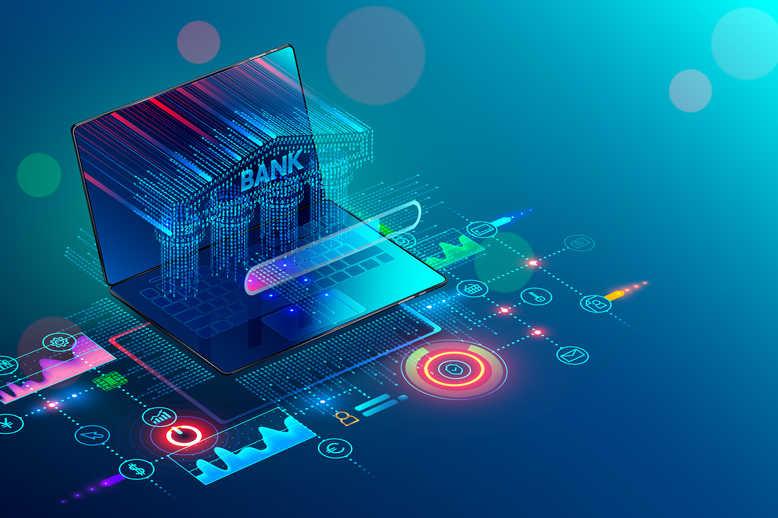How Digital Era Banks Are Reshaping the Future of Financial Services Worldwide

In today's fast-paced and tech-driven world, traditional banking is undergoing a revolutionary transformation. The rise of Digital Era Bank—also known as digital-only or neobanks—has changed the way people interact with their money. These banks operate entirely online, with no physical branches, offering financial services through mobile apps and web platforms. From seamless transactions to real-time analytics, digital banks are reshaping the global financial landscape in significant ways.
What Are Digital Era Banks?
A Digital Era Bank is a financial institution that offers all or most of its services through digital platforms. Unlike traditional banks that rely on brick-and-mortar locations, these banks use technology to deliver a smooth and user-friendly experience. Services like opening an account, transferring funds, applying for loans, or managing investments are all done online.
Some well-known digital banks include Chime (USA), N26 (Germany), Monzo (UK), and Nubank (Brazil). These banks often target tech-savvy users, younger generations, freelancers, and small businesses looking for convenient, fast, and cost-effective banking solutions.
Key Features of Digital Era Banks
-
Mobile-First Approach
Digital banks focus on mobile apps that are intuitive and easy to use. Users can perform nearly every banking task from their smartphone—whether it's paying bills, checking balances, or tracking spending. -
24/7 Accessibility
Since there are no physical branches, digital banks are available around the clock. This is particularly useful for customers who travel frequently or work non-standard hours. -
Lower Fees and Better Rates
Without the overhead costs of physical locations, digital banks often pass savings on to customers through lower fees and better interest rates on savings. -
Instant Notifications and Real-Time Updates
Customers receive instant alerts for every transaction, providing full control and transparency over their finances. -
AI and Data Analytics
Many digital banks use artificial intelligence to offer personalized financial advice, budgeting tools, and spending analysis, helping users manage their money smarter.
Benefits of Digital Era Banking
-
Convenience: You no longer have to stand in long queues or follow banking hours. Everything is available on your device.
-
Speed: Account setup can take just a few minutes. Money transfers and bill payments happen instantly.
-
Security: While digital banks face cyber risks, they also use strong encryption, biometric logins, and two-factor authentication to protect accounts.
-
Financial Inclusion: In regions with limited access to traditional banking, digital banks are providing services to the unbanked population through smartphones.
Challenges Facing Digital Era Banks
Despite their many advantages, digital banks face several challenges:
-
Trust and Credibility
Many people still trust traditional banks more, especially for high-value transactions or long-term investments. -
Cybersecurity Threats
As digital banks grow, they become prime targets for hackers. Ensuring data protection is an ongoing challenge. -
Regulatory Hurdles
Different countries have different rules for digital banking. Meeting global compliance standards can be complex. -
Customer Support
Since there are no branches, customer service is usually done via chat or email. This may be frustrating during emergencies or complex queries.
The Role of Fintech in Digital Banking
Fintech (Financial Technology) plays a crucial role in the evolution of digital banking. From blockchain technology and AI to machine learning and cloud computing, fintech innovations enable digital banks to offer smarter, faster, and safer services. Fintech companies often partner with digital banks to create innovative products like:
-
Peer-to-peer lending
-
Robo-advisors for investment
-
Cryptocurrency wallets
-
Instant credit scoring systems
Digital Banking and the Future of Finance
As technology continues to evolve, so will digital banking. Here are some trends that are likely to shape its future:
-
Open Banking: Sharing data between financial institutions to create better, more personalized services.
-
Embedded Finance: Financial services integrated into non-financial apps, like e-commerce or ride-sharing apps.
-
Voice and Chatbot Banking: Managing finances through voice assistants like Alexa or chatbot services.
-
Sustainable Finance: Digital banks promoting green banking practices and ethical investment options.
Conclusion
The rise of Digital Era Bank is not just a trend—it's a fundamental shift in how financial services are delivered and consumed. These banks are transforming banking into a more accessible, efficient, and personalized experience. While there are still challenges to overcome, especially in areas like cybersecurity and regulation, the future of digital banking looks promising.
As more people around the world embrace mobile and online banking, traditional banks must evolve or risk becoming obsolete. The winners in this new era will be those that combine technology with trust, innovation with reliability, and speed with security.
Discover More At:-
Follow Us On LinkedIn :- https://www.linkedin.com/company/digital-era-bank
Follow Us On Twitter :- https://x.com/digitalerabank
Follow Us On Telegram :- https://t.me/debctokens
Follow Us On Discord :- https://discord.gg/Ez5g6dHeB5
Follow Us On Medium :- https://medium.com/@digitalerabank
Follow Us On Reddit :- https://www.reddit.com/r/DigitalEraBank/
Address :- Intershore Chambers, Road Town, Tortola, British Virgin Islands
Email Us :- investor.relations@digitalerabank.com
Call Us :- +1 (604) 800-0932
- Vibnix Blog
- Politics
- News
- Liberia News
- Entertainment
- Technology
- Éducation
- Art
- Causes
- Crafts
- Dance
- Drinks
- Film
- Fitness
- Food
- Jeux
- Gardening
- Health
- Domicile
- Literature
- Music
- Networking
- Autre
- Party
- Religion
- Shopping
- Sports
- Theater
- Wellness



